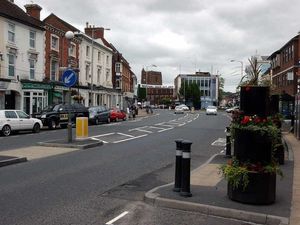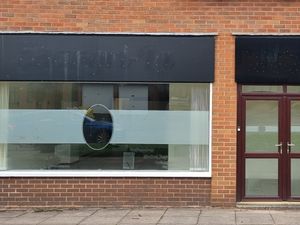West Midlands cyber crime victims lose £2 million in 12 weeks
Victims in the West Midlands have had more than £2 million stolen from them through cyber crimes in the space of just a few months, shocking new figures reveal.
But the actual figure could be a lot higher, as a large proportion of cyber crime goes unreported, the Office of the Police and Crime Commissioner for the West Midlands said.
According to the figures released yesterday by the National Crime Agency as part of a Cyber Force Profile for the West Midlands, £2,074,230 was stolen between July and September last year.
This figure includes £1,106,502 stolen through cyber dependent crimes and £967,728 stolen through cyber-enabled crimes.
1) Use strong passwords
2) Make sure your firewall is active
3) Don't download if you're not sure
4) Install the latest operating systems
5) Encrypt personal and sensitive data
6) Make sure your wifi network is secure
7) Check social media privacy settings
8) Use anti-virus/malware software
9) Carefully check your bank statements for every transaction every month
10) Call the police if you think you have been a victim of cyber crime
Cyber-enabled crimes are those that are made possible because of computers and cyber dependent are crimes against computers.
During the three-month period, 92 cyber enabled crimes were reported with the most costly of these being the hacking of victims' bank card, online bank account and/or cheques. 13 per cent of victims were so traumatised they had to receive medical treatment or were at risk of bankruptcy.
A total of 94 cyber dependent crimes were committed in the same period with 79 per cent of them made up of hacking of social media or email accounts; computer viruses, malware or spyware; or personal hacking.
West Midlands Police and Crime Commissioner David Jamieson said: "Crime is changing not falling and it is vital we get to grips with issues such as cyber crime. We must understand it in order to tackle it.
"Economic development is right at the core of what we do and what I believe is that economic success is one of the ways we can build a better society. This is part of my ambition. Tackling cyber crime and other crimes that affect local businesses is one way of achieving that."
One company which was the victim of cyber crime was the Tetra Group based in Edgbaston in Birmingham. The firm, which specialises in construction and facilities management, had a six-figure sum stolen when it was targeted in a cyber enabled crime.
It was hit with a Dridex infection last January, with a corrupted Microsoft Word document allowing cyber criminals to dodge the company's existing anti-malware software and make 21 fraudulent payments to mule accounts.
The 'Mule Herder' was arrested in London for the crime but the business have got a warning for others in the region.
Paul Myers, one of the firm's directors said: "I always thought 'it will never happen to me' but this has totally changed the way I look at things.
"Basically they unleashed a virus on us. They could track our keystrokes and log on to our system. This allowed the criminals access to our bank account.
"It was just an everyday Word document. We opened it up, as you do, thinking it was an invoice or something, and it took over everything. We had the latest anti-virus software but that particular virus had only been released that morning and it beat it.
"We've upped our security measures since then: everything now has double authorisation, there are new computers, new warning screens, new passwords, new Wifi, counter signatures, standalone computers and laptops – the lot. It took around £100 for all of the above and I would urge all businesses to do the same. It's no different to putting an alarm on your house – and don't wait for it to happen to you first."
Maureen Symes, the company's PA who opened the Word document, added: "People think cyber crime is faceless and victimless but real people are affected. I was totally devastated: I was left shaking and I felt so guilty, so worried, so stressed. The whole episode really took its toll on everyone concerned."




